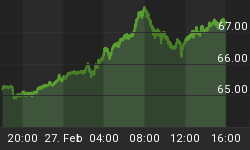As some of you might recall, Ronald Reagan's now-famous 1984 presidential campaign, "Morning in America," renewed many Americans' confidence in this country's financial future. Likewise, the May 16 election of Narendra Modi--whose campaign slogan, "Good times ahead," taps into the same sense of optimism--couldn't come at a better time for India and the surrounding region.

Sworn in on Tuesday, Modi's pro-business, small-government policies have already prompted many citizens of the world to liken him to such transformative leaders as Reagan and Margaret Thatcher. Because he has vowed to widen India's doors to foreign investment, rehabilitate its crumbling--or, in many regions, nonexistent--infrastructure, deregulate the retail industry and loosen the red tape that has halted domestic coal production, investor confidence in the South Asian country has surged like never before.
For the past six months, foreign investors have bought up more than $16 billion in Indian stocks and bonds in anticipation of Modi's win and hold approximately 22 percent of Mumbai-listed equities, valued at nearly $280 billion. Since the election, the Indian markets have been bullish, with the rupee crossing 59 levels against the dollar. These activities have made the world's largest democracy the top performer this year among the four BRIC economies.
"We want more strength for the wellbeing of the country," Modi said after declaring victory. "I see a glorious and prosperous India."
Modi has a proven track record of turning economies around.
As head of the state of Gujarat, a position he held prior to being elected prime minister, he oversaw annual economic growth of 10 percent. He is also credited for bringing electricity to all 60.4 million Gujarat residents--a first for India.
One of his loftier goals is to do the same for all 1.2 billion Indians using clean power generation such as wind and solar. Currently, 400 million citizens--more than the combined populations of the U.S. and Canada--are without power. The plan is that by 2019, every home will be able to run at least two light bulbs, a cooker and a television.

Such a colossal undertaking as bringing power to every home will require the import and production of untold amounts of metals such as copper and steel, not to mention the construction and rehabilitation of the nation's poor infrastructure, which is decades behind China's.
According to Ajay Piramal, Chairman of the Piramal Group, one of the roads to India's prosperity is "infrastructure development. Reviving infrastructure projects by streamlining approval and decision-making processes will be critical. By 2019, the structural growth rate of India should be at 8 percent or higher."
Under the new prime minister's watch, the growth of industrials and materials is very promising.
India is already the fourth-largest steelmaker in the world, having produced 7.25 million tonnes in March alone. But with the implementation of new infrastructure and energy projects, steel production has the potential to explode.
The same can be said of coal. Even though India, the world's second-most populous country, is rich in coal, mining has historically been stymied as a result of tortuous bureaucracy and stateism. To facilitate foreign investment in the resource and boost product output, Modi is considering breaking up Coal India Ltd., India's state-controlled mining company.

With more jobs up for grabs, more Indians will be able to afford the sort of lifestyle and consumption habits that many Americans enjoy. As I've previously discussed, gold is a prime gift to give and receive in India during religious holidays and celebrations. A robust working class will ensure that gold continues its trend as a desired and accessible commodity.
It's too early to tell if morning has indeed arrived in India. To be sure, the nation faces many challenges that block its path to prosperity, including debilitating bureaucracy, an inefficient agricultural sector, low literacy rate and widespread poverty. But as I often say, government policy is a precursor to change, and with Modi at the helm, "good times ahead" sounds like more than an empty promise. Provided his administration can make good on his many ambitious plans, investment in the energy, industrials, materials and utilities sectors could conceivably see fair returns.















